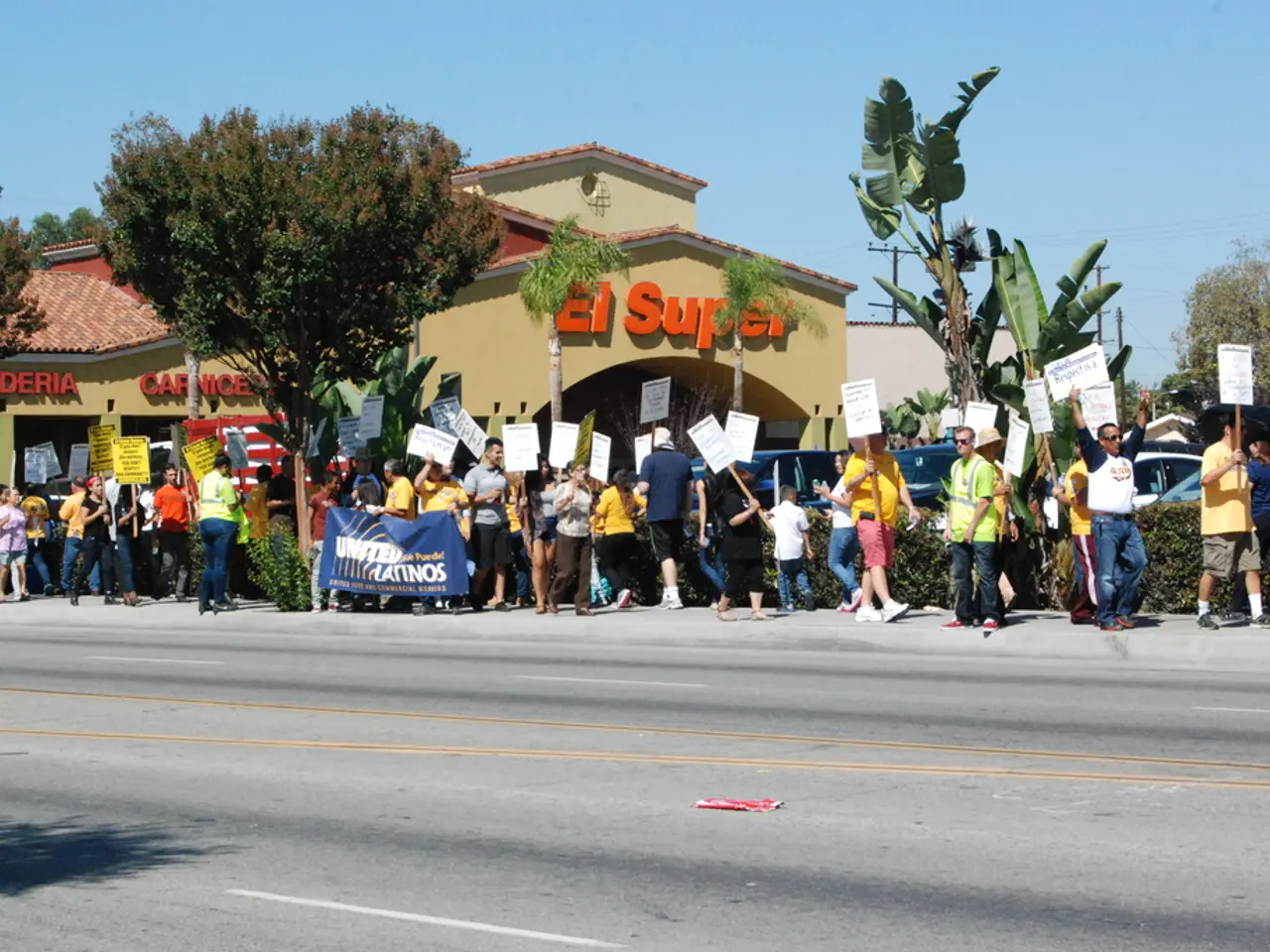Uncertainty persists over South Korea's trade agreement with the U.S., as their leader expresses ambiguity, with President Trump's deadline looming.
**South Korea-US Tariff Negotiations: Uncertainty and Potential Economic Impacts**
The ongoing tariff negotiations between South Korea and the United States are fraught with complexity and uncertainty. President Lee Jae Myung has expressed doubts about meeting the July 8 deadline, citing the difficulty in finding mutually beneficial outcomes for both parties [1].
Initially, the Trump administration announced tariffs as part of broader trade measures but temporarily paused their implementation for 90 days [1]. South Korea is seeking an extension on this pause and an exemption from all U.S. reciprocal and product-specific tariffs [1].
The potential outcomes for South Korea's economy if these negotiations fail or tariffs are imposed are significant. Tariffs on key industries such as automobiles and semiconductors could have a substantial impact, given their crucial role in South Korea's trade-dependent economy [2]. The imposition of a 25% tariff could lead to increased costs for South Korean exporters, potentially reducing their competitiveness in the U.S. market [1].
Beyond direct tariffs on South Korean products, there are concerns about tariffs on goods produced in other countries where many South Korean firms operate, such as Vietnam [3]. For instance, Samsung smartphones produced in Vietnam could face tariffs if they are eventually included in new tariff rates.
The negotiations are also complicated by the U.S. demand for broader trade adjustments, including higher payments for U.S. military presence on the Korean peninsula. This could add further economic burdens on South Korea [2].
Meanwhile, President Lee Jae Myung is making efforts to revive talks with North Korea. He has been in discussions with his presidential security and intelligence officials about the matter but has not provided further details [4]. His government has also made proactive efforts to build trust with North Korea, halting frontline anti-Pyongyang propaganda broadcasts and taking steps to ban activists from flying balloons carrying propaganda leaflets across the border [4].
President Lee came to power after winning a snap presidential election caused by the ouster of conservative President Yoon Suk Yeol. The tariff hikes and "America First" policies of President Trump pose challenges for Lee's month-old government [5].
As the July 9 expiration of the 90-day pause in global reciprocal tariffs set by President Trump approaches, both countries are working to clarify their positions and identify areas of agreement [1]. The outcome of these negotiations will have far-reaching implications for the economies of both South Korea and the United States.
References: [1] https://www.reuters.com/world/asia-pacific/south-korea-aims-extend-us-tariff-talks-past-july-8-deadline-2021-07-01/ [2] https://www.bloombergquint.com/onweb/us-south-korea-tariff-talks-still-at-impasse-as-deadline-looms [3] https://www.reuters.com/business/autos-transportation/samsung-electronics-vietnam-factory-faces-potential-us-tariffs-2021-06-24/ [4] https://www.reuters.com/world/asia-pacific/south-korea-north-korea-talks-2021-07-01/ [5] https://www.washingtonpost.com/world/asia_pacific/south-koreas-new-president-takes-office-amid-a-domestic-crisis-and-a-north-korean-nuclear-threat/2022/05/10/dcd73764-271c-11ec-8d6d-3e06f98d989b_story.html
- The ongoing tariff negotiations between South Korea and the United States extend beyond just economic policy-and-legislation, as they also involve considerations in the world of politics, such as the demand for broader trade adjustments and the payment for U.S. military presence.
- The South Korean art scene, as well as its economy, might be affected by the tariff negotiations, with potential tariffs on key industries like automobiles and semiconductors impacting South Korea's overall competitiveness in the global market, and indirectly affecting products made by South Korean firms in countries like Vietnam, such as Samsung smartphones.
- The ongoing negotiations and the potential impacts on the South Korean economy, including the possibility of increased costs and reduced competitiveness, are major items in the general-news, with many outlets covering the developments and implications for both South Korean and American economies.








